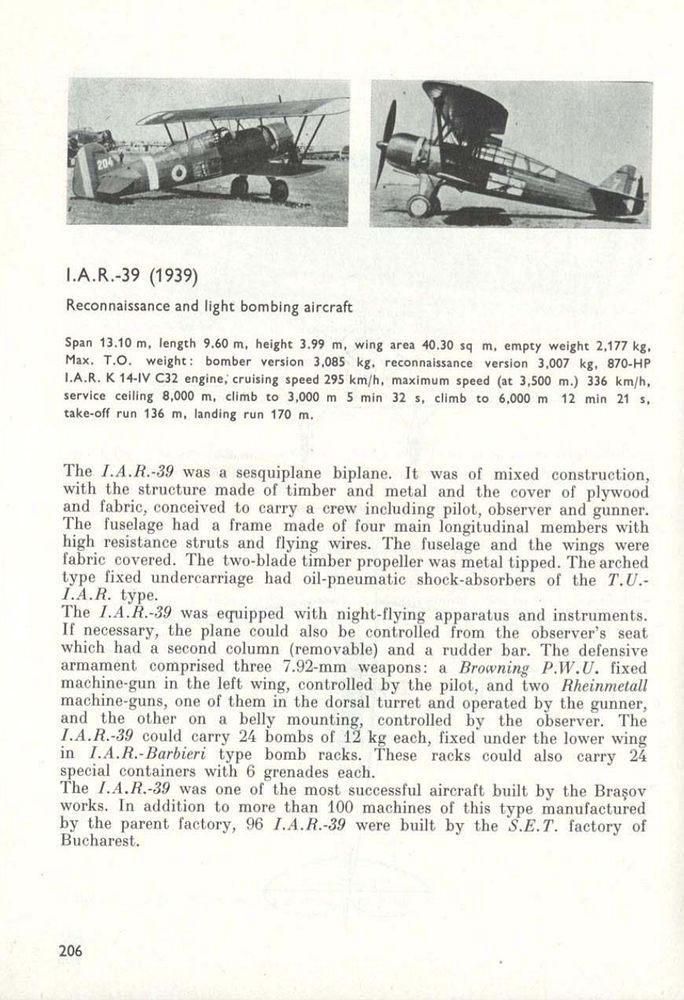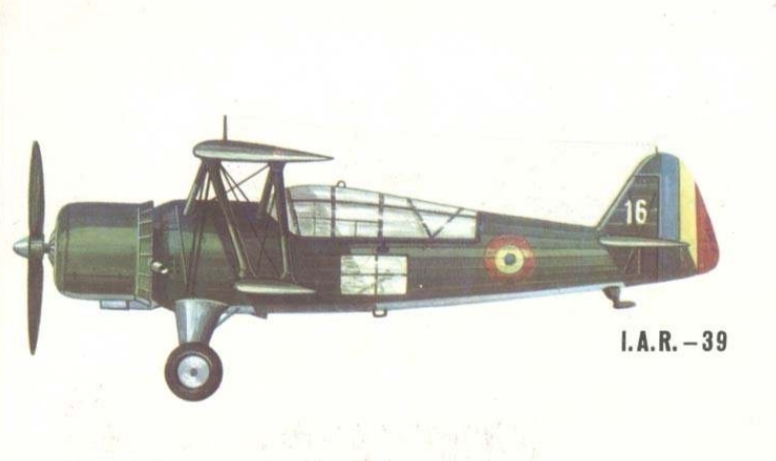- Yes
- No
The IAR-39A was variant of the IAR-37, a light bomber and observation/recon bi-plane aircraft designed and first flown in 1937, and was intended for the Royal Romanian Air Force. The IAR-37 showed promising results during testing, and would eventually be approved for production and service in 1938, There were many variants of the IAR-37 that would be designed and produced, including the IAR-38, 38, and the last one being the IAR-39A. In late 1938, the IAR 14K IIC-32 engine entered production, and 49 IAR-37s would receive them, however the engine caused some structural issues, and so production was delayed so they could modify the aircraft to resolve these issues, this would result in the IAR-39, which was first flown in 1940, and 95 units of this variant would be produced, having serial numbers 1-95. However by 1942, production of the IAR-39 would be transferred from the IAR plant to the SET plant, with the aircraft produced their having an S as a part of their serial numbers, there the aircraft would receive the IAR 14K IV C, which resulted in the IAR-39A, and production of the IAR-39A would finally be stopped in 1944 after 160 were produced. IAR-39As had serial numbers 96-255.
Compared to the other variants, at least according to their specifications, the original IAR-37, and IAR-39A are the best, while the IAR-39, and especially the IAR-38 being the worst. Comparing the IAR-39A and IAR-37, I would say both are very comparible with each having their own pros and cons. The IAR-39 has larger wing span than the IAR-37, slightly faster top speed at 336 km/h vs the IAR-37s 335 km/h, and has considerably faster climb time, with it being able to reach 4000m in 7 minutes and 18 seconds, much better than the IAR-37s 8 minutes and 30 seconds. However the IAR-37 has a higher combat weight than the IAR-39A, able to equip 4 machine guns (2 forward, 2 rear facing), and 12 50 kg bombs, while the IAR-39A only has 3 machine guns (2 forward, 1 rear facing), and can carry 24 12 kg bombs.
Spoiler

The IAR-37 family would have heavy involvement in WW2 from the first day of Romania’s involvement all the way to the last day of their involvement, and would be fight both on and behind the front lines, fighting on pretty much every theater Romania fight in. They were used in pretty much any role it can fulfill, from observation/recon, and bombing (obviously), to being used as convoy escorts, fighters when they began having shortages of proper fighters, towing gliders, dropping leaflets, trainers for Ju-87D crews, etc. Though the IAR-37 family became outdated fairly quickly, being unarmored, slow, and having weak armaments, and though the Romanians tried substituting its roles to more capable German made aircraft, and had attempted to replace them with domestic designs such as the IAR-47, and IAR-471 prototypes, neither would be produced, so the Romanians had to make do. That being said the IAR-37 family performed fairly well all things considered, and were well liked by the ground units they supported.
After WW2, the what remained of the IAR-37 family would receive civilian codes, and would be used all the way up until the 1960s. However non survive today.
Specifications:
Spoiler

| Wingspan | 13.10/10 m |
| Length | 9.6 m |
| Height | 4.09 m |
| Weight (empty) | 2177 kg |
| Weight (bomber) | 3085 kg |
| Weight (recon) | 3007 kg |
| Maximum speed at 3200 m | 336 km/h |
| Climbs to 4000 m | 7 min. 18 sec. |
| Maximum operational ceiling | 8000 m |
| Range | 680 km |
| Engine | IAR 14K IV c32 1025 HP |
| Machine-guns | 3x7.92 mm Browning PWU |
| Bombs | 24x12 kg |
| Serial numbers | 96-255 |
Photos:
Sources:


































